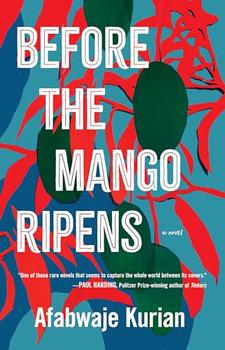Book Club Discussion Questions
In a book club? Subscribe to our Book Club Newsletter!
For supplemental discussion material see our Beyond the Book article, Christianity in Nigeria and our BookBrowse Review of Before the Mango Ripens.
Please be aware that this discussion guide will contain spoilers!
- How do Jummai, Tebeya, and Zanya each embody different aspects of Rabata's society? Discuss their personal journeys and the challenges they face.
-
Many of the characters in Rabata have maintained secrets or told half-truths. How do these secrets and half-truths shape the characters' actions and the overall plot? What are the consequences when these secrets are revealed? What are the consequences when the secrets remain undisclosed?
-
How do the American missionaries influence the social and interpersonal dynamics in Rabata? Discuss the effects of their presence on the town and its people, and the impact of the town on the missionaries.
-
How does the setting of 1970s Nigeria, a period of post-colonial transition, influence the story? What historical or cultural elements did you find most compelling? Which of these elements were you unaware of before this novel?
-
Faith is a central theme in the novel. In which ways do the townspeople accept or reject the Christianity of the missionaries? How do the townspeople and the missionaries, as individuals, differ in their practices and articulations of Christianity? How do the characters, in general, grapple with their beliefs and humanity, and how do these struggles reflect broader societal issues?
-
In what ways are the characters struggling with their own limited knowledge, worldviews, or perspectives? How do prejudices and stereotypes affect how the characters interact with one another? What role do race and power play in the characters' relationships and personal journeys?
-
How do the women in the novel (Jummai, Tebeya, Katherine, Delores) challenge and/or conform to traditional gender expectations?
-
Discuss how the characters search for belonging and identity within their community and beyond. How do their personal quests intersect with broader societal changes?
-
The novel builds up to the crucial question of whether to let the American missionaries stay, or make them go. How do the characters' decisions reflect their personal growth and the evolving identity of Rabata?
-
Many characters in the novel operate in ethical gray zones. Discuss how Afabwaje Kurian portrays the challenges of moral ambiguity and its impact on the reader's perception of the characters.
-
Though this novel is set in 1970s Nigeria, in what ways do the issues faced in Rabata feel relevant to the present moment, and your locale? Are there similar issues of race, culture, faith, identity, and belonging in your community, even if superficially distinct from the town of Rabata?
-
Afabwaje Kurian's work has been compared to that of Imbolo Mbue and Chimamanda Ngozi Adichie. If you have read works by these authors, how does Before the Mango Ripens compare and contrast in terms of plot, themes, style, tone, and impact?
Unless otherwise stated, this discussion guide is reprinted with the permission of Dzanc Books.
Any page references refer to a USA edition of the book, usually the trade paperback version, and may vary in other editions.
